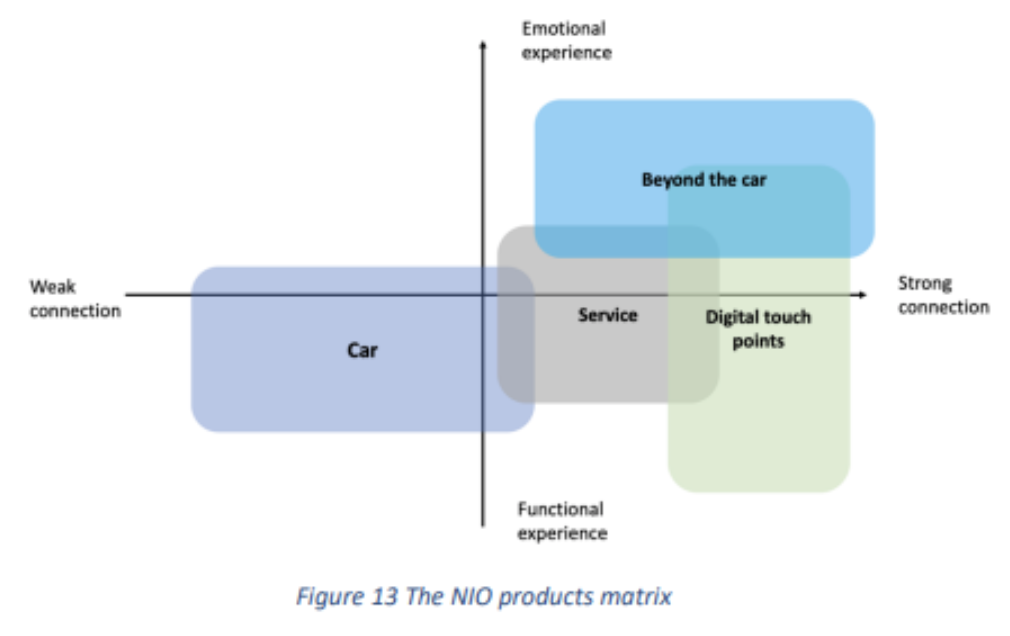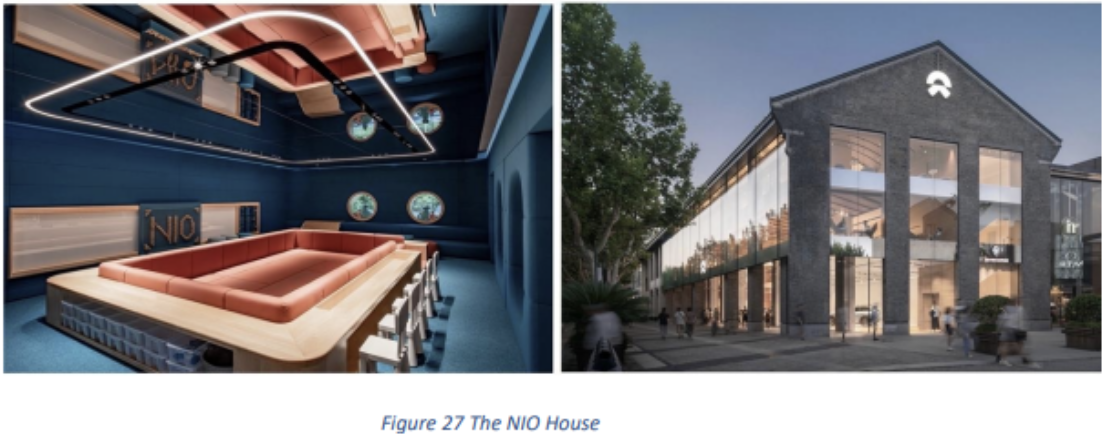Marketing driven IP strategy of Chinese Tesla rival NIO: Research Project at MIPLM/CEIPI
Chinese electric-car maker NIO is making waves in the electric vehicle (EV) industry thanks to its marketing approach. NIO was founded in 2014 and it’s a Shanghai-based startup that’s quickly become one of the world’s most valuable electric-car brands. NIO, which offers upscale battery-electric vehicles with a focus on performance, has positioned itself as an up-and-coming rival to Tesla with an even more digital marketing approach. But there are plenty of other things to learn about this company, which is driving ahead in pursuit of revolutionizing at least the Chinese auto market.
 NIO, Inc.is a Chinese holding company, which engages in the design, manufacture, and sale of electric vehicles, driving innovations in next generation technologies in connectivity, autonomous driving technologies and artificial intelligence. It also offers other value-added services such as service package, battery payment arrangement, and vehicle financing. It’s putting great efforts to create a brand-new luxury car brand in China, by virtue of the intelligent hardware, BaaS services, car owners’ community and circumspect aftersales service to build/maintain user loyalty.
NIO, Inc.is a Chinese holding company, which engages in the design, manufacture, and sale of electric vehicles, driving innovations in next generation technologies in connectivity, autonomous driving technologies and artificial intelligence. It also offers other value-added services such as service package, battery payment arrangement, and vehicle financing. It’s putting great efforts to create a brand-new luxury car brand in China, by virtue of the intelligent hardware, BaaS services, car owners’ community and circumspect aftersales service to build/maintain user loyalty.
The 7Ps helps companies to review and define key issues that affect the marketing of its products. It’s recommended that the full 7Ps of the marketing mix are considered when reviewing competitive strategies. IP, as the intangible asset, plays an important role in the obtaining the appropriation of the core competitive advantages of the company, such as products, business models etc.
 The ongoing digitalization leads to the reinvention of how businesses operate, especially enabled by today’s advanced technologies. In particular, the coincidence of so-called enabling technologies – e.g., cloud computing, internet of things, artificial intelligence, big data analytics – dramatically accelerates the pace at which today’s businesses are evolving. The digital transformation of traditional businesses leads to more volatile, uncertain, and complex business scenarios, but as well may be enabler for unique business opportunities. In this sense, the consequences of digital transformation of businesses may be disruptive to entire industries and businesses.
The ongoing digitalization leads to the reinvention of how businesses operate, especially enabled by today’s advanced technologies. In particular, the coincidence of so-called enabling technologies – e.g., cloud computing, internet of things, artificial intelligence, big data analytics – dramatically accelerates the pace at which today’s businesses are evolving. The digital transformation of traditional businesses leads to more volatile, uncertain, and complex business scenarios, but as well may be enabler for unique business opportunities. In this sense, the consequences of digital transformation of businesses may be disruptive to entire industries and businesses.
 There is no exception for the automotive industry, which has a long history with over several hundred years. For the automotive sector, these forces are giving rise to four disruptive technology-driven trends: diverse mobility, autonomous driving, electrification, and connectivity. It’s widely believed that these four technology-driven trends will reinforce and accelerate one another, and there is a consensus between the experts that the industry is ripe for disruption.
There is no exception for the automotive industry, which has a long history with over several hundred years. For the automotive sector, these forces are giving rise to four disruptive technology-driven trends: diverse mobility, autonomous driving, electrification, and connectivity. It’s widely believed that these four technology-driven trends will reinforce and accelerate one another, and there is a consensus between the experts that the industry is ripe for disruption.
With this research project we aim to present how NIO, as a new entrant, competes in the automotive sector in the transformation period by using the 7P methodology. Besides, it’s also about presenting how to apply the 7Ps marketing mixes to demonstrate a company strategy, combining it with an IPR analysis so as to verify their compatibility and whether the company achieved the appropriation of the customer benefits they created.
The research project was conducted by MIPLM graduate Xiaoqing Zhang and supervised by Prof. Dr. Alexander Wurzer and Dr. Thibaud Lelong both CEIPI.
 Xiaoqing is trained in mechanical engineering and electromechanics. He works as an IP engineer at ARaymond Group, France, the world leader in Fastening industry. ARaymond offers innovative fastening and assembly solutions for the automotive, industrial, photovoltaic energy, agriculture and health markets across the world. He holds dual qualification in both Patent and Law of China with more than 8 years experience and a deep knowledge about IP matters of China and Europe.
Xiaoqing is trained in mechanical engineering and electromechanics. He works as an IP engineer at ARaymond Group, France, the world leader in Fastening industry. ARaymond offers innovative fastening and assembly solutions for the automotive, industrial, photovoltaic energy, agriculture and health markets across the world. He holds dual qualification in both Patent and Law of China with more than 8 years experience and a deep knowledge about IP matters of China and Europe.
In 2021, Xiaoqing undertook the Master of Intellectual Property Law and Management at CEIPI, University of Strasbourg.
Here is a description of the research project:



